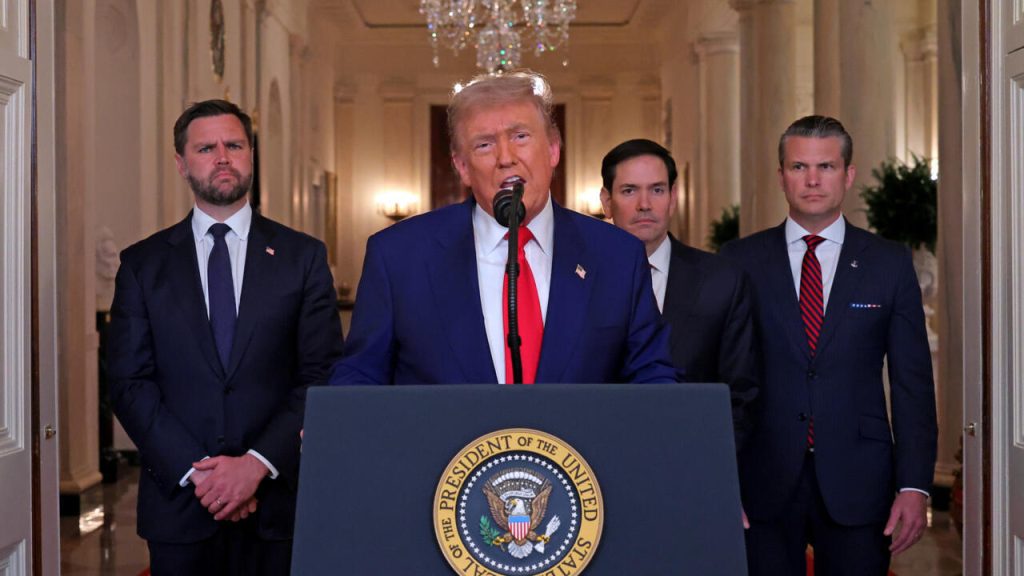A new chapter in the Israel-Iran conflict started early Tuesday as President Donald Trump announced a ceasefire between the two adversaries. However, confusion clouded the announcement as both sides exchanged fire even after the declaration. Israel’s government made no official statement, and Iran — despite agreeing to the truce — launched a barrage of missiles that killed at least four people.
The announcement followed a tense week of direct strikes between Israel and Iran. Two days prior, American bombers targeted Iran’s nuclear sites. Trump initially stated the Israel-Iran ceasefire would be implemented in phases. Later, at 8:38 a.m. Tehran time, he confirmed the halt had begun through a post on social media.
Iran’s Foreign Minister Abbas Aragchi had hinted several hours earlier, around 4:30 a.m., that the Iranian military had already observed the ceasefire. He mentioned that Iranian forces fought “until the very last minute.” Iranian state media soon confirmed the ceasefire officially.
Despite this, Israel reported that Iran had fired missiles in at least three waves during the early morning. The attacks left four people dead, according to Israel’s emergency services. Military analysts noted this kind of fire exchange is not rare at the beginning of a ceasefire, before full calm takes hold.
Tensions escalated further when Iran launched missiles at Al Udeid Air Base in Qatar. The base hosts 10,000 U.S. troops and serves as the main headquarters for the U.S. Central Command. Iran reportedly gave advance notice to reduce potential casualties. This was in direct retaliation for recent American strikes on its nuclear facilities.
Vice President JD Vance, reacting to Trump’s announcement, said the war seemed to be “effectively over.” He stressed the moment as a chance to revive genuine peace talks. President Trump, however, used firmer language, saying, “It has been fully agreed by and between Israel and Iran that there will be a Complete and Total CEASEFIRE.” He noted that some operations were still underway but would conclude gradually throughout the day.
According to three diplomats, speaking anonymously, Qatar played a major diplomatic role. Qatari officials reportedly persuaded Iran to accept a U.S.-proposed truce, following confirmation that Israel had agreed as well.
Earlier signs of de-escalation were visible. On Sunday night, Israeli Prime Minister Benjamin Netanyahu said Israel was “very, very close” to reaching its objectives in the conflict. However, he did not provide any exact timeline for halting the military campaign.
Additional Developments:
-
Economic Effects: Oil prices dropped while stock markets climbed. This happened right after Iran’s missile strike on Al Udeid. Investors showed cautious optimism that the Israel-Iran ceasefire might prevent further disruption in the oil trade, especially through the vital Strait of Hormuz.
-
Global Reactions: The European Union’s foreign ministers held emergency talks. The EU’s top diplomat, Kaja Kallas, warned that the risks of retaliation and escalation remain dangerously high. Meanwhile, the International Atomic Energy Agency convened a special meeting in Vienna. Its head, Rafael Grossi, warned of “unimaginable destruction” unless Iran, Israel, and the United States returned to diplomacy.


